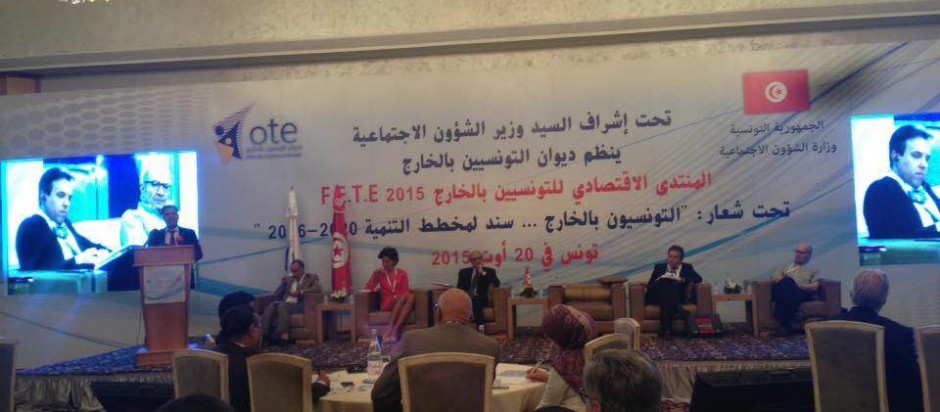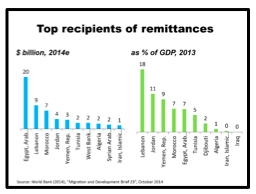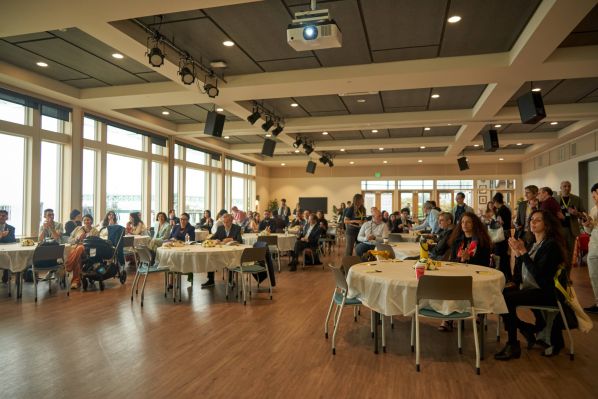Supporting Diaspora Engagement in Tunisia’s Economic Development

The role of Tunisia’s diaspora in promoting the country’s economic development is unquestionable. At a time when the country is in need of significant investment, access to foreign markets, and increased export opportunities, members of the diaspora can leverage their assets, business acumen, and networks to benefit the growth and sustainability of a strong Tunisian financial infrastructure.
In order to better engage with global diaspora networks, the Office des Tunisiens a’Etanger convened the first Economic Forum of Tunisians Living Abroad on August 20, 2015, in Tunis. The objective of this event was to rope in the Tunisian diaspora in the consultation and development of the Tunisian 5-year development plan 2016-2020. The event was an opportunity for policy makers to present the main building blocks of the draft Development Plan. In addition, Noomen Fehri, Minister of Communication Technology and Digital Economy took this opportunity to outline ‘Digital Tunisia 2018,’ which aims to create 80,000 jobs in the digital sector. According to Minister Fehri, Tunisians living abroad could provide approximately 50,000 jobs within the next five years if they invested in new technology sectors.
In addition, this forum provided a platform for Tunisian expatriates to comment on the state of the economy, highlighting the lack of a strong investment code and export boosting apparatuses. I was invited to speak at the forum as a senior economist at the World Bank, where I shared the preliminary results of the Middle East and North Africa diaspora survey and consultation I have been undertaking. This study provides a better understanding of how to mobilize the MENA diaspora in the globalization of the region, one of the least-integrated regions in the world. The study looks at the role the diaspora can play though investment, trade, knowledge transfer, capacity building, networking, and market access.

Preliminary results suggest that the MENA diaspora is very committed to the agenda, in particular through knowledge transfer and soft skills, business-to-business connections, direct investment and help with market access. They look forward to being considered as a serious stakeholder and partner by their respective governments. At present, remittances from the Tunisian diaspora accounts for almost five percent of the country’s gross domestic product.
While the final results of the study will not be available until the fall, it is clear that the diaspora is ready and willing to help remake the Tunisian economy, making it more inclusive, open to innovation, and amenable to necessary risk taking and investment. Organizations like the Tunisian American Young Professionals aim to reinforce these economic ties by supporting mentorship programs, investment roadshows and networking platforms to facilitate long-term growth and a reimagining of the economic ecosystem.
related news




About the author
Mariem M. Malouche